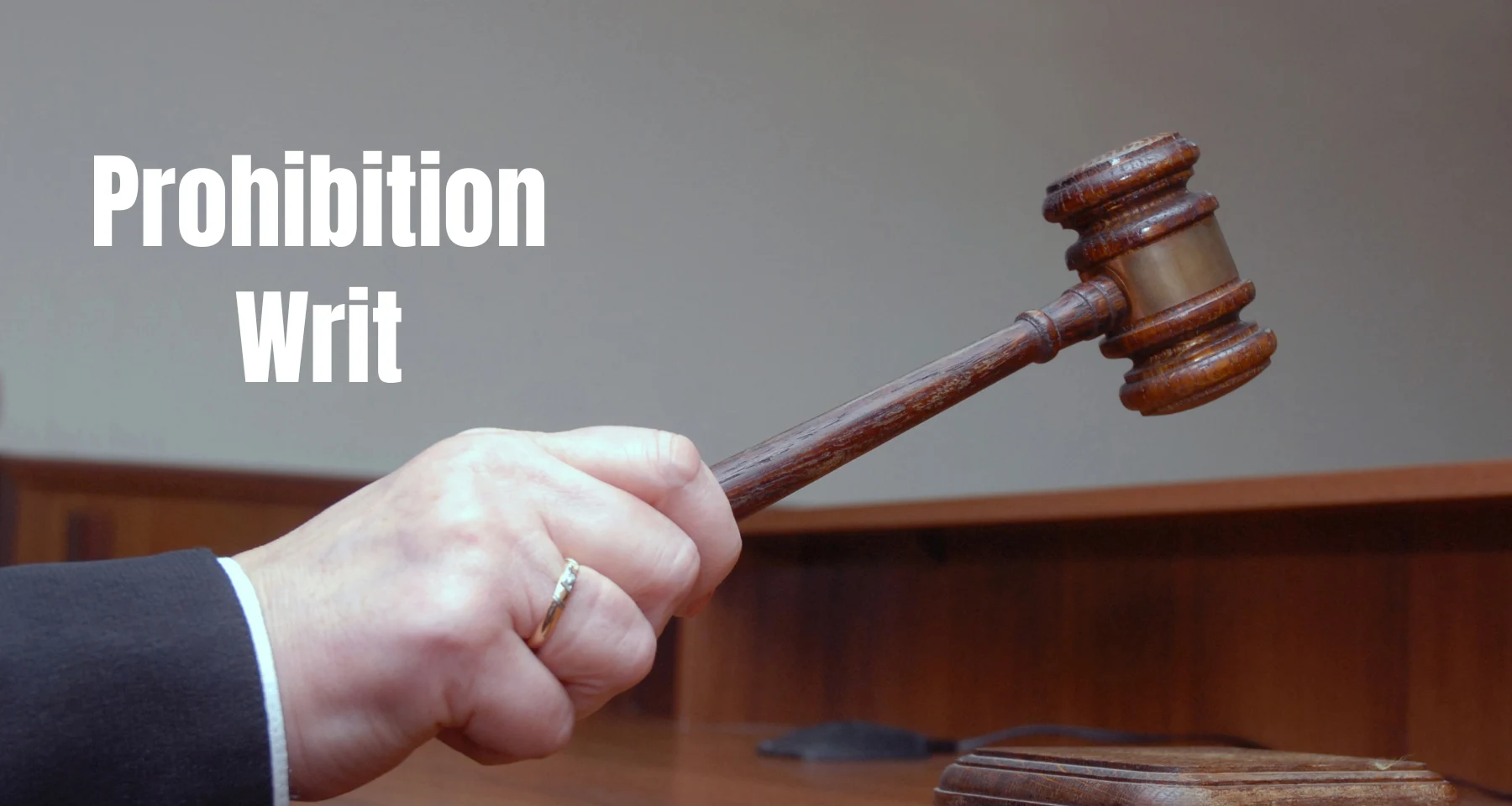Decoding the Prohibition Writ: In-depth Explanation

Explain The Prohibition Writ in Detail
Prohibition Writ is a legal remedy and writ that plays a crucial role in administrative law, specifically addressing situations where a lower court, tribunal, or quasi-judicial authority is perceived to be exceeding its jurisdiction or acting beyond the scope of its legal authority. The term “prohibition” implies forbidding or preventing, and the writ of prohibition is sought from a higher court to restrain the lower authority from continuing or taking any action that falls outside its prescribed legal limits.
Key aspects of the prohibition writ include:
1. Preventive Nature:
Prohibition operates as a preventive measure, aiming to stop or prevent the lower authority from proceeding with a matter over which it lacks jurisdiction or authority. It acts as a proactive remedy to avoid legal irregularities before they occur.
2. Jurisdictional Issues:
The writ of prohibition is typically invoked when there are concerns about the lower authority exceeding its jurisdiction or acting ultra vires, beyond its legal powers. It ensures that the lower authority stays within the bounds of its prescribed legal authority.
3. Availability to Superior Courts:
Prohibition is a remedy available to superior courts, allowing them to exercise control over the proceedings of inferior courts or tribunals. Higher courts have the power to issue a writ of prohibition to prevent potential legal errors or irregularities.
4. Grounds for Issuance:
The writ of prohibition may be sought on various grounds, including lack of jurisdiction, acting in excess of statutory powers, or violating the principles of natural justice. It ensures that legal proceedings are conducted in accordance with established legal principles.
5. Principles of Natural Justice:
Prohibition may be invoked if there is a perceived violation of the principles of natural justice by the lower authority. This includes concerns about a fair hearing or the right to be heard during proceedings.
6. Procedure:
The process of seeking a writ of prohibition involves filing a petition before the higher court, outlining the specific grounds on which prohibition is sought. If the court is satisfied that the lower authority is at risk of acting beyond its legal powers, it may issue the writ to prohibit further proceedings.
7. Discretionary Nature:
Like other prerogative writs, prohibition is a discretionary remedy. The court has the authority to decide whether the circumstances of the case warrant the issuance of the writ petition. The petitioner must demonstrate a prima facie case for the court to exercise its discretion in favor of prohibition.
8. Effect of Issuance:
If a writ of prohibition is issued, it acts as a stay order, preventing the lower authority from continuing with the proceedings in question. The lower authority is restrained from taking any action beyond its legal jurisdiction until the higher court decides on the matter.
In summary, the writ of prohibition plays a crucial role in upholding the rule of law and preventing legal irregularities by restraining lower authorities from exceeding their lawful jurisdiction. It underscores the hierarchical nature of the judiciary, ensuring that all legal proceedings adhere strictly to established norms and principles. For NRIs seeking legal recourse in India, understanding the nuances of writs like prohibition is essential. Consulting with experienced NRI legal services in India can provide valuable insights and representation to navigate such legal complexities effectively. Expert guidance ensures that procedural fairness is upheld and that rights are protected within the framework of Indian law, promoting a just and equitable resolution of legal disputes.

